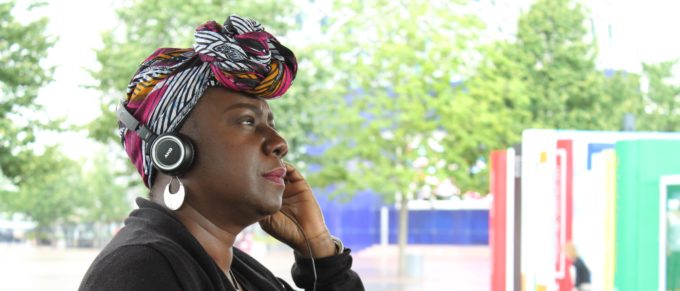
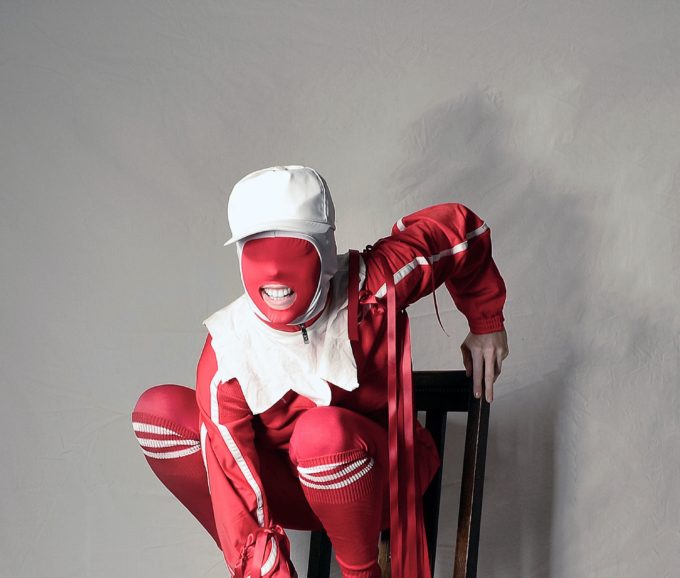
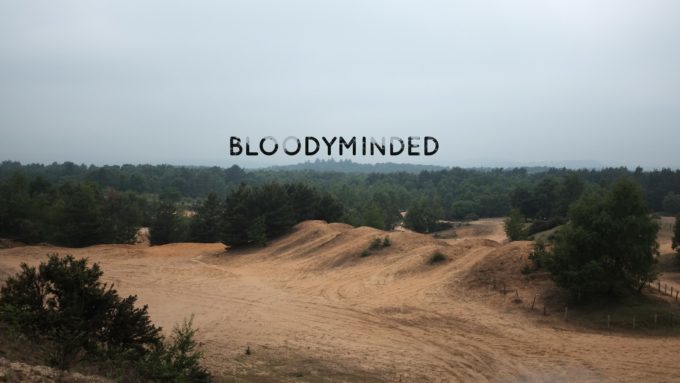
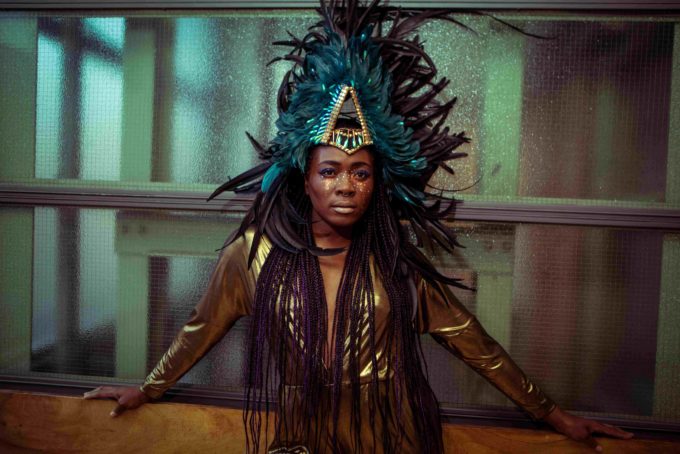
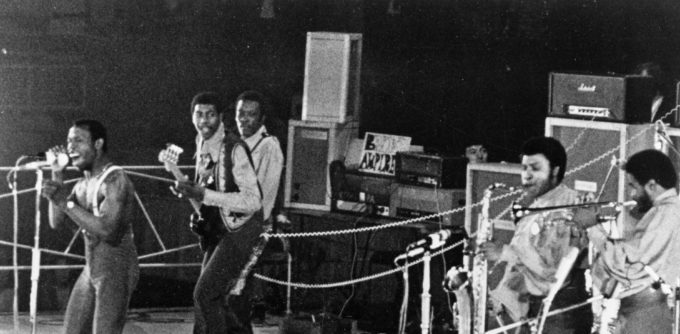
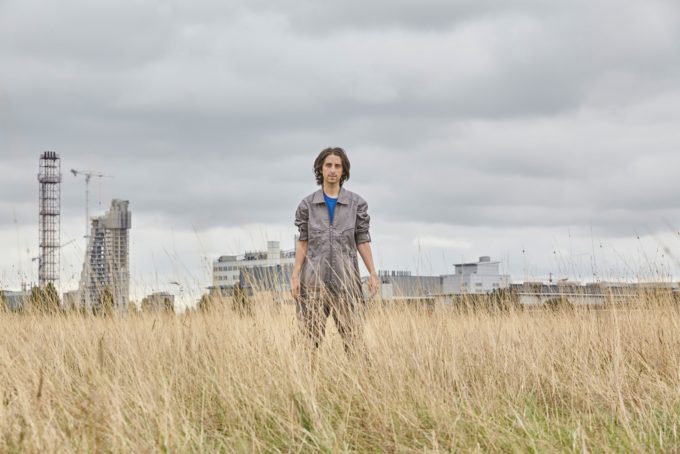
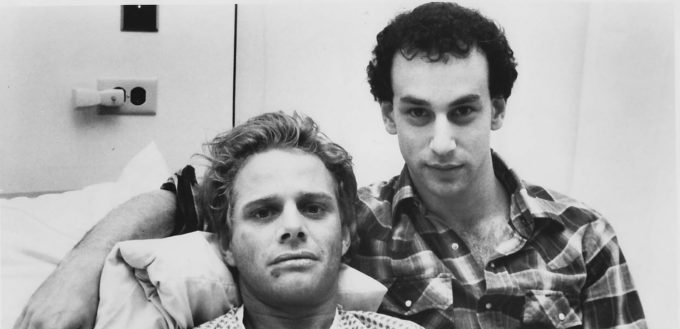
Ahead of our 2018 Autumn season, we caught up with Attenborough Centre for the Creative Arts’ Creative Director, Laura McDermott, to discuss what to expect from the new season and the curatorial decisions behind another exciting line up of performances, gigs, installations and screenings on campus.
What should we expect from the 2018 Autumn Season?
We’re working with some of our favourite local partners once again. For example, during Brighton Digital Festival (September – October) we are hosting a curated series of electronic music and audio-visual installation and for CINE-CITY (Brighton’s Film Festival) we will show a range of film screenings that focus on music and film (including some fantastic live-score projects).
The performances and installations for Brighton Digital Festival have been curated by our Associate Music Programmer, Laura Ducceschi. I am particularly looking forward to Aether by Max Cooper and Architecture Social Club, a kinetic installation – “a three dimensional light field experience” - inspired by forms and patterns in nature. It will be incredible.
Another highlight in Brighton Digital Festival is the double bill of Gazelle Twin and Gaika , who have both recently released albums. Gaika has worked a lot in Brighton and he was in Brighton Festival this year as part of a Lighthouse commission. Gazelle Twin used to live in Brighton and Elizabeth studied music at University of Sussex, we’re proud to be part of this first tour of the new album.
For CINE-CITY we are hosting two live-score projects. Firstly, Asian Dub Foundation’s seminal re-score of La Haine, a 90’s film set in the Parisian suburbs in the aftermath of a riot, reflecting on the racial tensions in France at that time. We’re thrilled to be bringing this project back – it has been shown previously to wide acclaim, including at David Bowie’s edition of Meltdown in London. The second is the UK premiere of a project by Icelandic band amiina (who used to be the string quartet for Sigur Ros). They have composed a live score for the silent film Fantômas . The music is released as an album so it’s also able to stand on its own, independent of any visual narrative, but combined with the film it will be spectacular.
Also – I can’t wait to see Scottee’s Fat Blokes . This brand new performance is a “sort of dance show” and “a fat rebellion” created by Scottee and four male collaborators. Follow Scottee on Instagram to get a sense of his sharp, political wit – he gives the best Insta stories!
What were your main objectives when programming this new Autumn season?
As a multi-disciplinary venue, we always seek a balance between artforms: music gigs, dance, performance, installation and film. We’re always looking for work that speaks in different ways to the topics of human rights and social justice.
We also look for connections to University of Sussex and the fantastic teaching and research that take place here. Often we collaborate with academics to organise public events, such as 50 Years of Reggae: a programme of film, discussion and music curated by Professor Martin Evans and supported by the Resistance Studies Network and the Centre for Photography and Visual Cultures at University of Sussex.
As well as programming finished shows, we also support artists to develop new work. Two performances this season have been partially developed here at Attenborough Centre for the Creative Arts. Both are by artists who live in Brighton:
Firstly, on 25 and 26 October, there are two preview performances of Sue MacLaine’s new work Vessel. Inspired by the religious tradition of the anchorite who withdraws from society, this piece looks at silence, voice, language and who has the right to speak. Sue is a BSL interpreter as well as a theatre maker. This work incorporates captioning within the artistic mis-en-scene, making the accessibility (particularly for D/deaf audience members) integral to the piece.
On 1 and 2 November, we are thrilled to host Marisa Carnesky for two performances of Dr Carnesky’s Incredible Bleeding Woman. Marisa has been in residence with us this summer, re-working this piece for larger-scale spaces. The project busts open the taboos surrounding menstruation and draws in mythology, science, politics and personal experience. This genre-bending performance combines a lecture style format with stage magic and turns from artists and cabaret performers Fancy Chance, Rhyannon Styles, MisSa Blue, H Plewis and Nao Nagai.
In light of what has worked before, have you stuck with things that have seemed to work for us in the past or have you taken more experimental risks when programming the season?
As with most things, I think balance is essential - but personally, I see taking risks as a very important thing in art. Art can be a safe space for risk. Art can push things further, provide provocation and help you discover the edges of your opinions and prejudice. Our Autumn 2018 season includes many different voices and perspectives. That diversity of voices is very important to me.
Does the current political climate have an impact on how you have curated the programme and what audiences will see this season?
Yes, the programme is always political but it is not always directly engaging with “capital P politics” of Westminster.
For example, in the current climate of rising racism and xenophobia – it is political to host The Empathy Museum: A Mile in My Shoes, a project that asks you directly to see the world through someone else’s eyes for fifteen minutes. Rachael Young’s Nightclubbing , reflects on the story of three women who were turned away from a club in London, which sparked allegations of a racist door policy). She takes this event and blends it into an Afrofuturist vision for the future inspired by her love of Grace Jones.
In the current environment of global political instability, and during the last year 14-18 NOW (a programme of events looking back at World War 1) we are proud to be co-commissioners of Bloodyminded by Blast Theory, which looks at the history of conscientious objection in war and connects it to our present moment. This project is the UK’s first live interactive feature film, and it will ask searching questions about conflict and resistance. Audiences will be asked to consider the ethics behind what it means to engage in combat, or to refuse to fight.